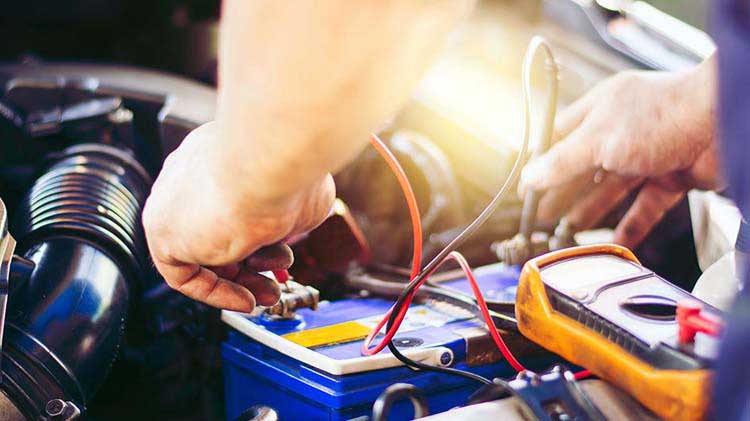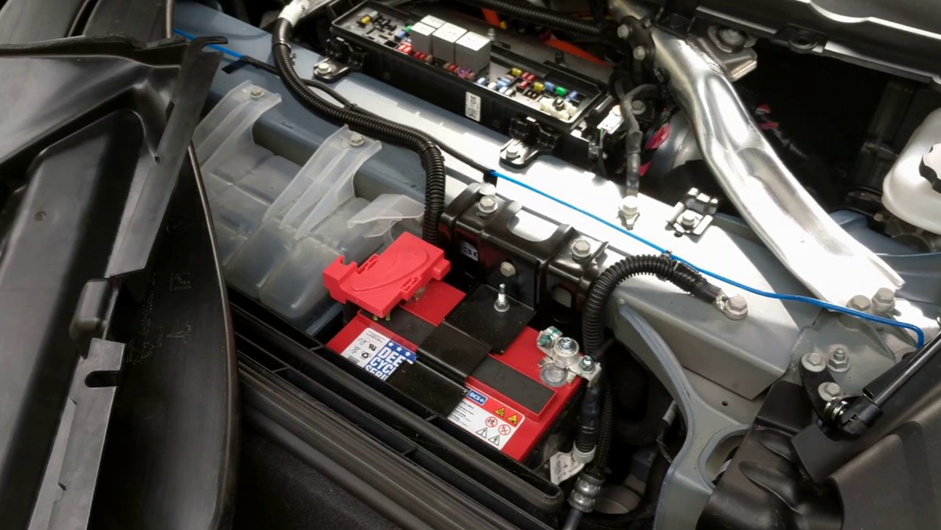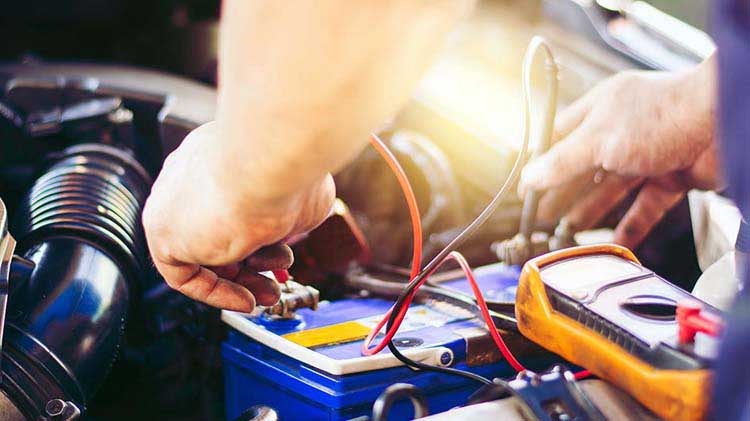Повышенная производительность и увеличенный срок службы литиевой батареи LiFePO4 емкостью 100 Ач
Введение:
Lithium-ion batteries, specifically Lithium Iron Phosphate (LiFePO4) batteries, have gained significant attention in recent years due to their high energy density, longer lifespan, and improved safety features compared to conventional battery technologies. This article focuses on the advancements made in enhancing the performance and extending the lifespan of 100Ah LiFePO4 batteries.
1. Enhanced Performance:
1.1 Cathode Material Optimization:
To improve the performance of LiFePO4 batteries, researchers have focused on optimizing the cathode material. By modifying the particle size and surface morphology, the electrochemical performance of the cathode material can be enhanced. The use of nano-sized LiFePO4 particles has shown improved electrochemical properties, including higher specific capacity, better rate capability, and enhanced cycling stability.
1.2 Electrolyte Composition:
The choice of electrolyte greatly impacts the performance of LiFePO4 batteries. Researchers have explored various electrolyte compositions to enhance battery performance. By using additives such as vinylene carbonate (VC) and fluoroethylene carbonate (FEC), the stability of the solid electrolyte interface (SEI) is improved, resulting in higher capacity retention and improved cycling stability.
1.3 Electrode Structure Engineering:
The electrode structure plays a crucial role in the performance of LiFePO4 batteries. Researchers have developed advanced electrode structures, such as hierarchical porous structures, to enhance the electrochemical performance. These structures provide increased active material utilization, shortened diffusion paths for lithium ions, and improved electron transport, resulting in higher capacity, better rate capability, and prolonged cycle life.
2. Extended Lifespan:
2.1 State of Charge (SoC) Management:
Proper management of the battery\’s state of charge is essential to extend its lifespan. Overcharging or deep discharging can lead to irreversible capacity loss and degradation of the electrode materials. Implementing advanced battery management systems that accurately monitor and control the SoC can significantly extend the lifespan of LiFePO4 batteries.
2.2 Temperature Control:
Temperature has a significant impact on the performance and lifespan of LiFePO4 batteries. Higher temperatures accelerate the degradation processes, leading to reduced capacity and shorter lifespan. Implementing effective thermal management systems that maintain the battery within the optimal temperature range can mitigate degradation, ensuring prolonged battery lifespan.

2.3 Cycle Life Improvement:
Researchers have focused on improving the cycle life of LiFePO4 batteries by implementing various strategies. These include the use of carbon-coated electrode materials to enhance the mechanical stability of the electrode and reduce particle cracking during cycling. Additionally, optimizing the electrode-electrolyte interface can minimize side reactions and improve the overall stability of the battery, resulting in extended cycle life.
Заключение:
The advancements in enhancing the performance and extending the lifespan of 100Ah LiFePO4 batteries are promising for various applications, including electric vehicles, renewable energy storage systems, and portable electronics. The optimization of cathode materials, electrolyte composition, and electrode structures has shown improved electrochemical properties. Implementing proper state of charge management, temperature control, and cycle life improvement strategies can further extend the lifespan of these batteries. With ongoing research and development, LiFePO4 batteries are expected to play a crucial role in the future of energy storage and transportation.
-
 Введение: В современном быстро меняющемся мире портативные электронные устройства стали неотъемлемой частью нашей повседневной жизни. От смартфонов до ноутбуков — эти устройства произвели революцию в том, как мы общаемся, работаем и развлекаемся. Одним из важнейших компонентов, который способствовал этой революции, является литиевая батарея. Благодаря высокой плотности энергии и длительному сроку службы литиевые батареи стали предпочтительными...Читать далее
Введение: В современном быстро меняющемся мире портативные электронные устройства стали неотъемлемой частью нашей повседневной жизни. От смартфонов до ноутбуков — эти устройства произвели революцию в том, как мы общаемся, работаем и развлекаемся. Одним из важнейших компонентов, который способствовал этой революции, является литиевая батарея. Благодаря высокой плотности энергии и длительному сроку службы литиевые батареи стали предпочтительными...Читать далее -
 As an indispensable power source in modern electronic devices, lithium batteries are of great importance. However, in addition to their use in various high-tech products, the working principle and composition of lithium batteries themselves are also worth exploring in depth. This article will analyse this issue from four aspects: the basic working principle of lithium batteries, the core components, the...Читать далее
As an indispensable power source in modern electronic devices, lithium batteries are of great importance. However, in addition to their use in various high-tech products, the working principle and composition of lithium batteries themselves are also worth exploring in depth. This article will analyse this issue from four aspects: the basic working principle of lithium batteries, the core components, the...Читать далее -
 Введение: Литий-ионные батареи, в частности литий-железо-фосфатные батареи (LiFePO4), в последние годы привлекли к себе значительное внимание из-за их высокой плотности энергии, более длительного срока службы и улучшенных функций безопасности по сравнению с традиционными аккумуляторными технологиями. В этой статье основное внимание уделяется достижениям в области повышения производительности и продления срока службы аккумуляторов LiFePO4 емкостью 100 Ач. 1. Повышенная производительность: 1.1 Оптимизация материала катода:...Читать далее
Введение: Литий-ионные батареи, в частности литий-железо-фосфатные батареи (LiFePO4), в последние годы привлекли к себе значительное внимание из-за их высокой плотности энергии, более длительного срока службы и улучшенных функций безопасности по сравнению с традиционными аккумуляторными технологиями. В этой статье основное внимание уделяется достижениям в области повышения производительности и продления срока службы аккумуляторов LiFePO4 емкостью 100 Ач. 1. Повышенная производительность: 1.1 Оптимизация материала катода:...Читать далее -
 Литий-железо-фосфатный аккумулятор (LiFePO4) 48 В: эффективное и надежное решение для электропитанияС развитием технологий и растущим спросом на устойчивые энергетические решения литий-железо-фосфатные батареи (LiFePO4) в последние годы привлекли значительное внимание. Эти аккумуляторы широко известны своей эффективностью, надежностью и длительным сроком службы, что делает их отличным решением для электропитания для различных применений. Батареи LiFePO4 известны своей высокой плотностью энергии, что означает, что они могут...Читать далее
Литий-железо-фосфатный аккумулятор (LiFePO4) 48 В: эффективное и надежное решение для электропитанияС развитием технологий и растущим спросом на устойчивые энергетические решения литий-железо-фосфатные батареи (LiFePO4) в последние годы привлекли значительное внимание. Эти аккумуляторы широко известны своей эффективностью, надежностью и длительным сроком службы, что делает их отличным решением для электропитания для различных применений. Батареи LiFePO4 известны своей высокой плотностью энергии, что означает, что они могут...Читать далее -
 Поездка по бездорожью всегда была увлекательным и увлекательным занятием, но теперь она совершила революцию благодаря мощности литиевой батареи электрического мотоцикла для бездорожья. Прошли времена шумных и загрязняющих окружающую среду бензиновых мотоциклов для бездорожья. Электрические мотоциклы для бездорожья — это будущее бездорожья, обеспечивающее более чистый и экологичный способ насладиться отдыхом на свежем воздухе. Литиевая батарея...Читать далее
Поездка по бездорожью всегда была увлекательным и увлекательным занятием, но теперь она совершила революцию благодаря мощности литиевой батареи электрического мотоцикла для бездорожья. Прошли времена шумных и загрязняющих окружающую среду бензиновых мотоциклов для бездорожья. Электрические мотоциклы для бездорожья — это будущее бездорожья, обеспечивающее более чистый и экологичный способ насладиться отдыхом на свежем воздухе. Литиевая батарея...Читать далее -
 In today's technologically advanced world, industrial power products batteries play a crucial role in powering the backbone of modern industries. These batteries are not only essential for providing a reliable source of power but also contribute to enhancing efficiency, productivity, and sustainability. Industrial power products batteries are specifically designed to meet the demanding power needs of various industries, including...Читать далее
In today's technologically advanced world, industrial power products batteries play a crucial role in powering the backbone of modern industries. These batteries are not only essential for providing a reliable source of power but also contribute to enhancing efficiency, productivity, and sustainability. Industrial power products batteries are specifically designed to meet the demanding power needs of various industries, including...Читать далее -
 Introduction: Batteries play a crucial role in powering various devices and systems. From smartphones to electric vehicles, the demand for high-performance batteries is on the rise. As a result, the need for efficient battery chargers has become paramount. The 48V LiFePO4 battery charger has emerged as a reliable and efficient charging solution for high-performance batteries. This article delves into the...Читать далее
Introduction: Batteries play a crucial role in powering various devices and systems. From smartphones to electric vehicles, the demand for high-performance batteries is on the rise. As a result, the need for efficient battery chargers has become paramount. The 48V LiFePO4 battery charger has emerged as a reliable and efficient charging solution for high-performance batteries. This article delves into the...Читать далее

